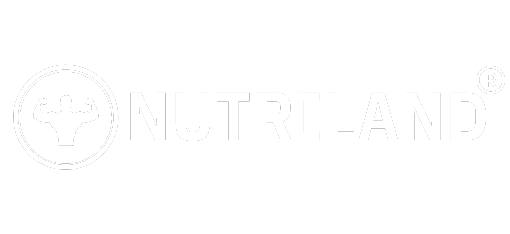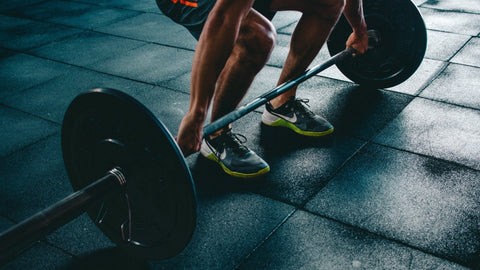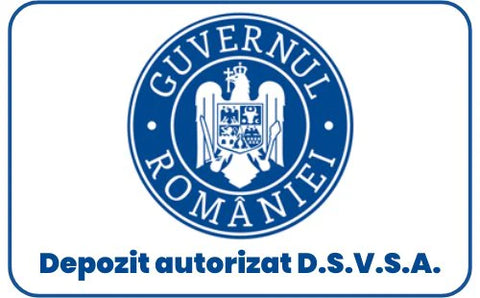
The body needs more nutrients to function properly and to give us a good mood throughout the day. Among them are vitamins E and D, magnesium, probiotics, selenium and, last but not least, zinc. The latter is vital to a balanced life and we must always make sure that we are not zinc deficient. It can be taken to an extremely large extent from food, and if we fail to do this, then we can supplement with certain zinc-based vitamins . Zinc has multiple benefits for health, and in the following we will detail exactly everything you need to know about this micronutrient which, sometimes, can be underestimated by the majority of people.
content
2. The benefits of zinc for health
3. Zinc contraindications for administration
4. Recommendations of foods rich in zinc
5. How do we realize that we have zinc deficiency in the body?
1. What is zinc?
Zinc is a vital mineral for the body, without which quite negative effects can appear, such as a decrease in immunity. Moreover, like concentration, this is the second essential element in the body, after iron. Zinc is found in all tissues and fluids in the body, so the daily requirement is approximately 9.5 mg for men and 7 mg for women.
Moreover, there are no deposits of zinc in the body, as are found in the case of other vitamins, so you must always be careful to feed the body with this mineral. Zinc is distributed in cells, predominantly in bones and other tissues, fluids, internal organs. However, the largest amount of zinc, in the proportion of 95%, is found in the cells.
2. The benefits of zinc for health
Zinc has many beneficial effects, fulfilling different roles in the body. So, first of all, this mineral helps support the immune system. According to specialists, the human body needs T cells to function, because they are responsible for the correct functioning of the immune system, and zinc is what activates them.
Also, zinc has antioxidant effects, that is, it reduces oxidative stress in the body, which is known to promote faster illness. Moreover, it also helps to regulate and produce insulin. Therefore, it is an essential mineral for people who face diabetes, so they must pay even more attention to zinc.
Moreover, zinc has visible benefits on the outside of the body as well. Specifically, it helps to maintain nails, hair, and even skin. This is all the more important for women, who want both hair and long nails, which require a complex of vitamins and minerals . At the same time, zinc helps to regenerate the skin, so it is easy to notice if you are deficient in zinc, because the skin will be dry, easily exfoliated, and the nails will be thin and prone to breaking.
You should also know that zinc is a very good fighter for fertility and contributes to the ovulation process, in the case of women, and to the production of semen and testosterone, in the case of men.
All women should know that zinc is a very good regulator of the menstrual cycle, due to the fact that it adjusts the level of estrogen in the body. Also, with its help, you can get rid of the pains of this not-so-pleasant period, but especially of cramps.
The consumption of zinc is also extremely beneficial in the summer, because it helps to protect the skin from the strong rays of the sun, so that it will not be damaged and will be repaired faster, after exposure to UV light. The same is true for other skin burns, because zinc stimulates enzymes and proteins, so the healing process will be faster. It also protects the skin from other infections, and in the case of inflammation, it keeps them under control.
In addition to the benefits for hair and nails that we have already discussed previously, you should know that zinc also has miraculous effects on the health of the bone system. Concretely, the amount of calcium that will be absorbed into the skin depends on the high or low level of zinc that your body has. Therefore, if your body is rich in zinc, then in the case of a fracture, healing will occur faster, as in the case of skin injuries.
Zinc is also very beneficial in brain development, because neurons, i.e. brain cells, interact by releasing neurotransmitters, practically this is how information is transmitted from one cell to another. Without zinc, the release of these neurotransmitters will not be effective and will affect brain functions.
The benefits do not end here, because, as I said at the beginning of the article, they are extremely diverse. Therefore, among these, we must not forget about maintaining normal vision. Zinc is necessary in this process, being found in the area of the retina. According to specialists, together with vitamin A, zinc also helps in the production of melanin, which has a protective role for the eyes. Zinc deficiency will definitely be seen on this level, over time, especially at night, when vision will be severely affected.
Even if the list has a long way to go, among the main benefits worth mentioning here is the fact that zinc contributes to the reduction of ADHD symptoms, according to studies.
3. Zinc contraindications for administration
You have to stop consuming zinc, the moment an excess is created. Even if this mineral is vital for the body, to the same extent it can affect the human body, if its intake is exaggerated. Therefore, the zinc recommendation that women and men must consume should not be exceeded.
More than 40 mg of zinc per day can cause quite a lot of damage, even leading to acute intoxication. Among the symptoms that should raise alarm signals are the following: nausea, vomiting and abdominal cramps, the weakening of the immune system, the change in the level of iron, which is extremely important, and the decrease in the level of copper in the body.
When you feel one of these symptoms, it is necessary to stop consuming foods rich in zinc and immediately consult a doctor. In order not to end up in this situation, you must adopt a healthy, balanced and varied diet. Also, supplements rich in zinc should be taken only on the doctor's recommendation and only if there is a deficiency of this mineral in the body. In exchange for these, you can always opt forvitamins and minerals , which are essential in maintaining good health. Moreover, zinc-based supplements are not recommended for pregnant women, women who are breastfeeding, nor for children under three years of age.
Therefore, zinc has benefits and contraindications that you must always take into account before resorting to such a treatment.
4. Recommendations of foods rich in zinc
The best part, when it comes to this mineral, is that zinc-based foods are extremely varied, so that, if we don't have a deficiency, we can always get our zinc from food.
First of all, we have to start with the animal pods, which are the favorites of any carnivore. This category includes pork, beef and lamb in a fairly large quantity. 100 grams of meat of this kind contains on average 5 mg of zinc, that is almost half of the dose that men need daily.

Dairy products are also extremely rich in zinc, milk and cheese having a high content of this mineral, which is easily absorbed by the body. For example, 100 grams of yogurt contains approximately 3 mg of yogurt, and 100 grams of cheddar cheese can have about 30% of the required daily dose of zinc. Even if eggs contain a rather small dose, they are recommended in a balanced diet, their benefits being known to everyone.

Legumes also have a well-defined place when it comes to foods rich in zinc. Chickpeas, lentils and beans are natural sources of zinc. For example, 100 grams of zinc contains more than 12% of the recommended dose of zinc, so it should also be consumed in moderation. Broccoli, unlike chickpeas, contains 4 mg of zinc per 100 grams, but it is also very good. Among the vegetables rich in zinc are beetroot, mushrooms, potatoes, asparagus, lettuce, pumpkin and onion.

Seafood is also extremely beneficial in this regard. So, consume with confidence if you need zinc, salmon, sardines, clams, tuna, crab or mussels. For example, a portion of 100 grams of tuna contains 8 mg of zinc, and a portion of six oysters contains approximately 30 mg of zinc.

In this rich list of foods, we must not forget nuts, such as cashews, almonds, peanuts, hazelnuts and even pine buds, which are an excellent source of zinc. However, among these, cashew nuts easily win the top in this chapter, because a portion of 30 grams has approximately 15% of the recommended daily dose.

Last but not least, we must not forget, of course, about fresh fruits, such as pineapples, mangoes, strawberries, oranges, bananas or apricots. On average, 100 grams of oranges contain 2 mg of zinc, i.e. the perfect amount to complete the daily zinc requirement, in case you have very little left to add.

5. How do we realize that we have zinc deficiency in the body
Due to the fact that zinc is found in so many foods, zinc deficiency in the body occurs in quite rare cases. Just as the excess of zinc has specific symptoms, the deficiency also gives some clear signs, which should give us an alarm signal, but first we will address the severe deficiency. Zinc in children in small amounts can significantly delay the growth of the little one. Moreover, if we said above that zinc can help heal wounds faster, without it, they will pass much more difficult, and hair loss, dry skin can also be some signs that induce zinc deficiency in body.
Fatigue, lack of appetite and weight loss, implicitly, or diarrhea are other signs that can indicate that we are facing a lack of zinc.
A slight zinc deficiency leads to a decrease in immunity and to the accentuation of some health problems, and in the case of men it can even lead to impotence.
And this deficit can have, in turn, several causes. The main one and the one we have discussed so far is, of course, the limited consumption of foods rich in this mineral. This is the best case, because there is also the possibility that this happens due to excessive losses of zinc from the body or even due to the existence of a chronic disease. The most common chronic diseases that can affect the amount of zinc in the body are: cancer, problems with alcohol, diabetes or even chronic liver diseases.
Therefore, zinc is an indispensable mineral for the body, its role being well implemented. Zinc supports extremely many functions, including smell or taste, even if we did not specify them previously, and the fight against infections and inflammations on the skin. The best sources of zinc, when it comes to food, are, by far, oysters, beef, crab, and seeds. We must also not forget legumes, dairy products and whole grains.
If we have a healthy and balanced diet, we don't have to worry, because, implicitly, we will have the source of zinc needed for a day. If, however, you will face one of the symptoms listed above, then it may be about an excess or even a deficit, and here the help of the specialist doctor must intervene. For a healthier life and for the body to function efficiently, we must have all the necessary vitamins and minerals, mentioned at the beginning of the article.
Photo source: pexels.com






Comments (0)
There are no comments for this article. Be the first one to leave a message!